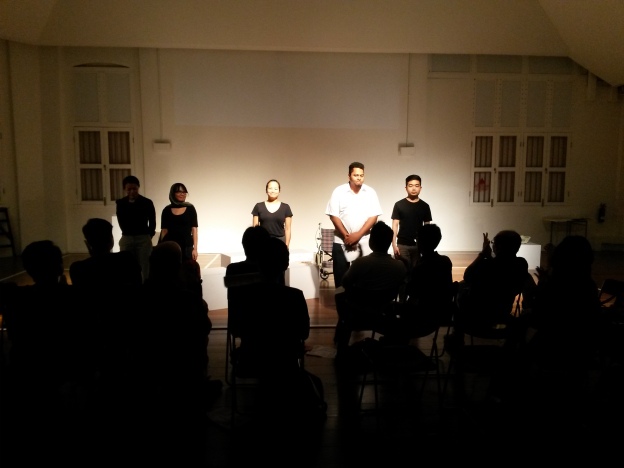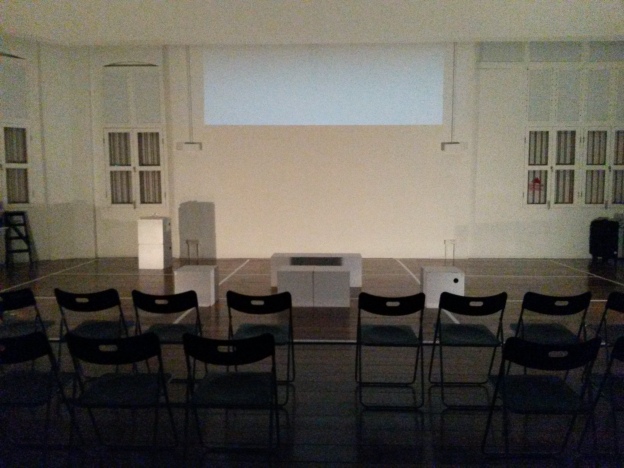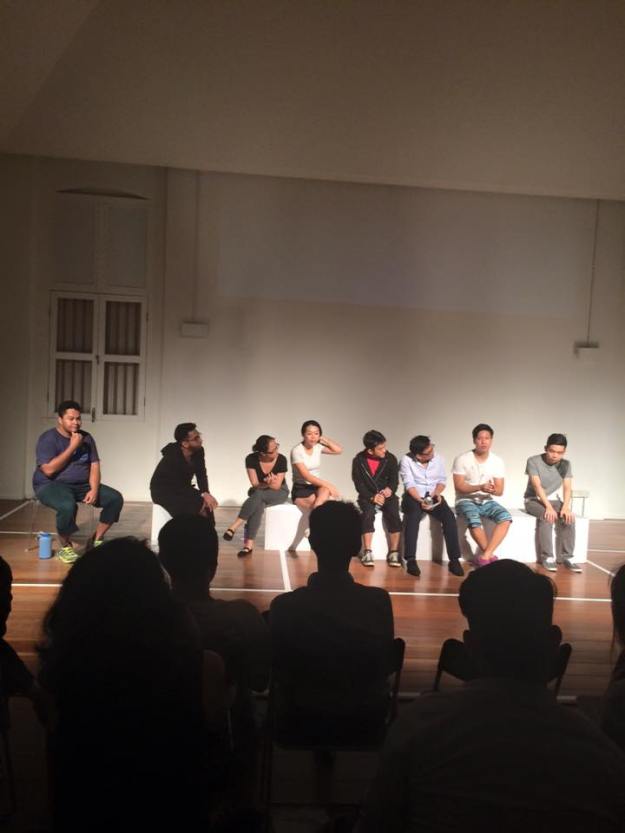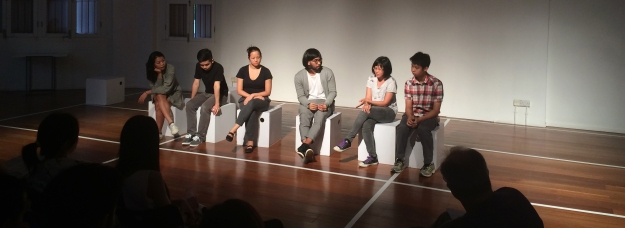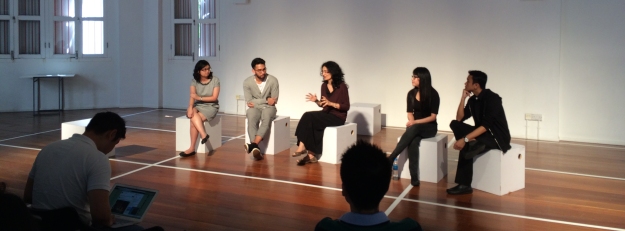Never squeeze your mind. Just relax, keep still, and wait for ideas to flow.
Never squeeze your heart. Love is either there or not there. It comes, it goes.
The mind and the heart are like tributaries with a higher source. They have seasons. Sometimes the sun blazes, sometimes it rains.
In conversation with the playwrights from Writings from The Heart: Part 2
Our Engagement Intern, Shifaa Jonoh spoke to the two different playwrights who are part ofWritings from The Heart. They are: Helmi Yusof and Gabriel Lim, playwrights of My Mother Buys Condoms/ My Father Wears Bras and We Fell In A Marathon respectively.
Just as the plays in this weekend’s Writing from The Heart are diverse in its subject matter and explorations, so are the playwrights who wrote them. Gabriel Lim is an avid theatregoer who occasionally indulges in painting, photography and writing and is currently exploring archived material in the 90s regarding Forum Theatre and Postmodernism. Likewise, Helmi Yusof is a journalist at The Business Times, covering arts and culture and has written on the arts and entertainment scene for various publications, including The Straits Times and Arena men’s magazine.
Drawing on their personal biographies and histories, each of their plays reflect a strong unique voice. When asked whether the characters in their plays were an extension of themselves, Gabriel shared how fragments of his characters represented certain personal moments in his life. His characters then allows him to revisit those moments and the choices he made, and rationalize the issues on a larger, universal scale through his play. On the other hand, Helmi’s was a personal response to the controversy of the National Library’s withdrawal of childrens’ books containing LGBT characters and single mothers as it was deemed unfit reading material for children. In the interview, he lets on a little fun fact as well: “I’ve only cross-dressed once in an all-boys school play. But I’m guessing somewhere in the recesses of my psyche there’s a sexually-frustrated 60-year-old woman and man in drag.”
When asked about how attending the Writing from The Heart programme mentored by Tony Perez helped them develop their scripts, both shared similar sentiments about him, saying that he was a wonderful mentor, with Helmi adding how he was thoroughly unconventional and intuitive. He described the workshops as “talking about everything from chakra points and meditation to Freud and Jung” and how one needed to have an open mind during these explorations. For Gabriel, he never expected a workshop to introduce such topics, but those avenues formed the basis for him to get really creative in his writing. It also served as a reminder for him to write with his gut feeling and see where it took him.
They also felt that such programmes were important because from Gabriel’s perspective, it provides a creative space to develop artists as well involving the community in its process. He adds on, “Theatre came from the people, the community. And we can all agree that the theatre as an art form is a great way of expression and to facilitate discussions.” Helmi agrees but highlights how a longer-term engagement – one that lasts over 5 to 10 years- may be necessary for a writer to find their voice. He goes on to say however, “Unfortunately, few theatre companies have those kind of resources.”
With their plays ready for this weekend, I asked if they would continue writing after the end of their programme, to which I received enthusiastic yeses. For Gabriel, he intends to find his eventual style of writing a play and Helmi, “If Tony Perez returns for another week-long engagement, I’ll definitely sign up.”


